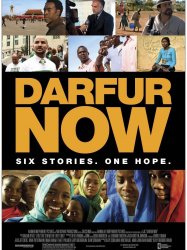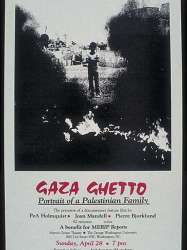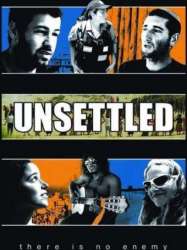Dans le silence, je sens rouler la terre is a Algérien film of genre Documentary
Dans le silence, je sens rouler la terre (2010)

If you like this film, let us know!
- Infos
- Casting
- Technical infos
- Photos
- Videos
- Film quotes
- Characters
- Music
- Awards
Dans le silence, je sens rouler la terre is a 2010 documentary film.
Synopsis
In 1939, the end of the Spanish Civil War forced thousands of men, women and children to flee Francoist Spain. The French administration in Algeria opened refugee camps to take them in. Seventy years later, a young Algerian investigates the past. Despite the absence of archives and files, the traces of these camps have survived the collective oblivion and still appear in current Algeria.Comments
Leave comment :
Suggestions of similar film to Dans le silence, je sens rouler la terre
There are 8965 with the same cinematographic genres, 11510 films with the same themes (including 3 films with the same 8 themes than Dans le silence, je sens rouler la terre), to have finally 70 suggestions of similar films.If you liked Dans le silence, je sens rouler la terre, you will probably like those similar films :

Darfur Now (2007)
, 1h38Directed by Ted Braun
Origin USA
Genres Documentary, Crime
Themes Films set in Africa, Films about immigration, Documentary films about law, Documentary films about war, Documentary films about historical events, Documentaire sur une personnalité, Documentary films about politics, Political films
Actors Don Cheadle, George Clooney, Arnold Schwarzenegger
Rating66%






Gaza Ghetto (1984)
Genres Documentary
Themes Films set in Africa, Films about families, Films about immigration, Films about religion, Documentary films about law, Documentary films about war, Documentary films about historical events, Documentaire sur une personnalité, Documentary films about politics, Documentary films about religion, Political films, Films about Jews and Judaism
Rating56%






Unsettled (2007)
, 1h20Genres Documentary
Themes Films set in Africa, Films about religion, Documentary films about law, Documentary films about war, Documentary films about historical events, Documentaire sur une personnalité, Documentary films about politics, Documentary films about religion, Political films, Films about Jews and Judaism
Rating73%





 , 1h25
, 1h25Directed by Yolande Zauberman
Origin France
Genres Documentary
Themes Films set in Africa, Films about religion, Films about sexuality, Documentary films about law, Documentary films about war, Documentary films about historical events, Documentaire sur une personnalité, Documentary films about politics, Documentary films about religion, Political films, Films about Jews and Judaism
Actors Juliano Mer-Khamis
Rating58%





Dans les bars de Tel Aviv, la nuit, la réalisatrice demande à des jeunes Juifs s'ils auraient des relations sexuelles avec des Arabes, et à des jeunes Arabes s'ils feraient l'amour avec des Juifs. Chacun donne son avis, avec plus ou moins d'explications, sur le symbole que cela peut représenter pour eux (beaucoup l'ont déjà fait) ou au contraire leur refus. Des jeunes issus de familles mixtes (un parent juif, l'autre arabe) sont également interviewés. Le film recueille aussi les témoignages du journaliste Gideon Levy et de l'acteur Juliano Mer-Khamis, de mère juive et de père arabe, assassiné en 2011 par des Palestiniens à Jénine.

Fascist Legacy (1989)
Origin United-kingdom
Genres Documentary
Themes Films set in Africa, Documentary films about law, Documentary films about war, Documentary films about historical events, Documentaire sur une personnalité, Documentary films about politics, Political films
Actors Michael Bryant

To Die in Jerusalem (2007)
, 1h15Origin Israel
Genres Documentary
Themes Films set in Africa, Films about religion, Documentary films about law, Documentary films about war, Documentary films about historical events, Documentaire sur une personnalité, Documentary films about politics, Documentary films about religion, Political films, Films about Jews and Judaism
Rating69%






The Gatekeepers (2012)
, 1h35Origin France
Genres War, Documentary, Action, Historical
Themes Films set in Africa, Spy films, Films about religion, Films about terrorism, Documentary films about law, Documentary films about war, Documentary films about historical events, Documentaire sur une personnalité, Documentary films about politics, Documentary films about religion, Documentary films about terrorism, Political films, Films about Jews and Judaism
Rating75%





Dror Moreh a décidé de réaliser ce film après avoir mesuré l'importance décisive du Shabak (Shin Beth) sur la scène politique israélienne depuis quarante ans. Ces six directeurs à la retraite de la sécurité israélienne évoquent leurs victoires et les échecs passés sans nostalgie. Très critiques vis-à-vis des politiques menées par leurs gouvernements (à l'exception de celui d'Yitzhak Rabin), ils défendent tous un changement radical de politique en Israël : la recherche de la paix et la reconnaissance au plus tôt de l’État palestinien.
 , 1h34
, 1h34Origin USA
Genres Documentary
Themes Films set in Africa, Films about racism, Documentary films about racism, Documentary films about law, Documentary films about war, Documentary films about historical events, Documentaire sur une personnalité, Documentary films about politics, Political films
Actors Helen Mirren
Rating75%






Arna's Children (2006)
Directed by Danniel Danniel, Juliano Mer-Khamis
Genres Documentary
Themes Films set in Africa, Films about religion, Documentary films about law, Documentary films about war, Documentary films about historical events, Documentaire sur une personnalité, Documentary films about politics, Documentary films about religion, Political films, Films about Jews and Judaism
Rating79%





Le documentaire raconte l’histoire de quelques jeunes combattants palestiniens de Jénine, dont certains ont été tués par les forces israéliennes. Enfants, ces jeunes faisaient partie d'une troupe théâtrale fondée par Arna Mer-Khamis, la mère du coréalisateur Juliano Mer Khamis.

Origin Israel
Genres Documentary
Themes Films set in Africa, Films about writers, Films about religion, Documentary films about law, Documentary films about war, Documentary films about historical events, Documentaire sur une personnalité, Documentary films about politics, Documentary films about religion, Political films, Films about Jews and Judaism
Rating65%





 Connection
Connection